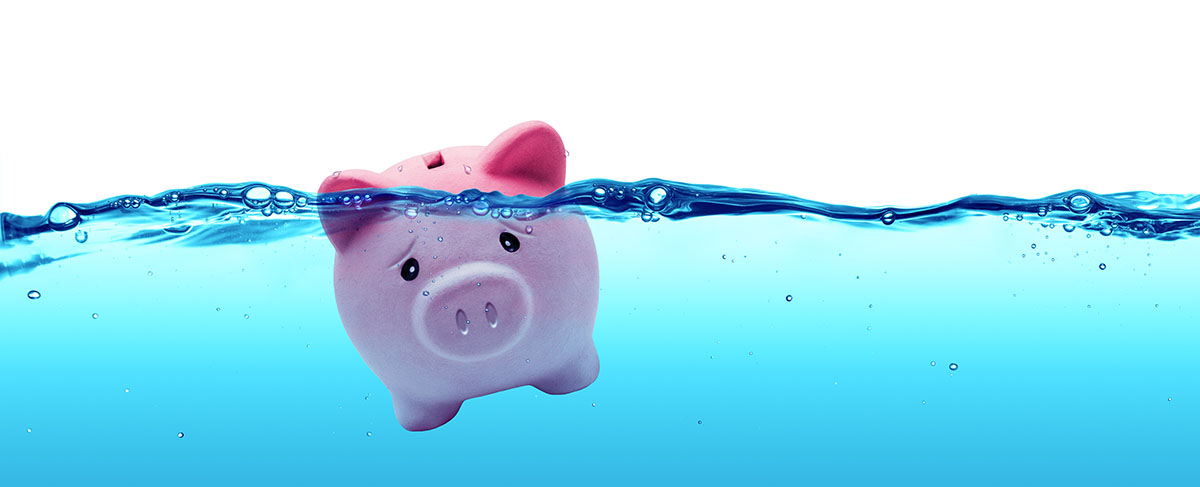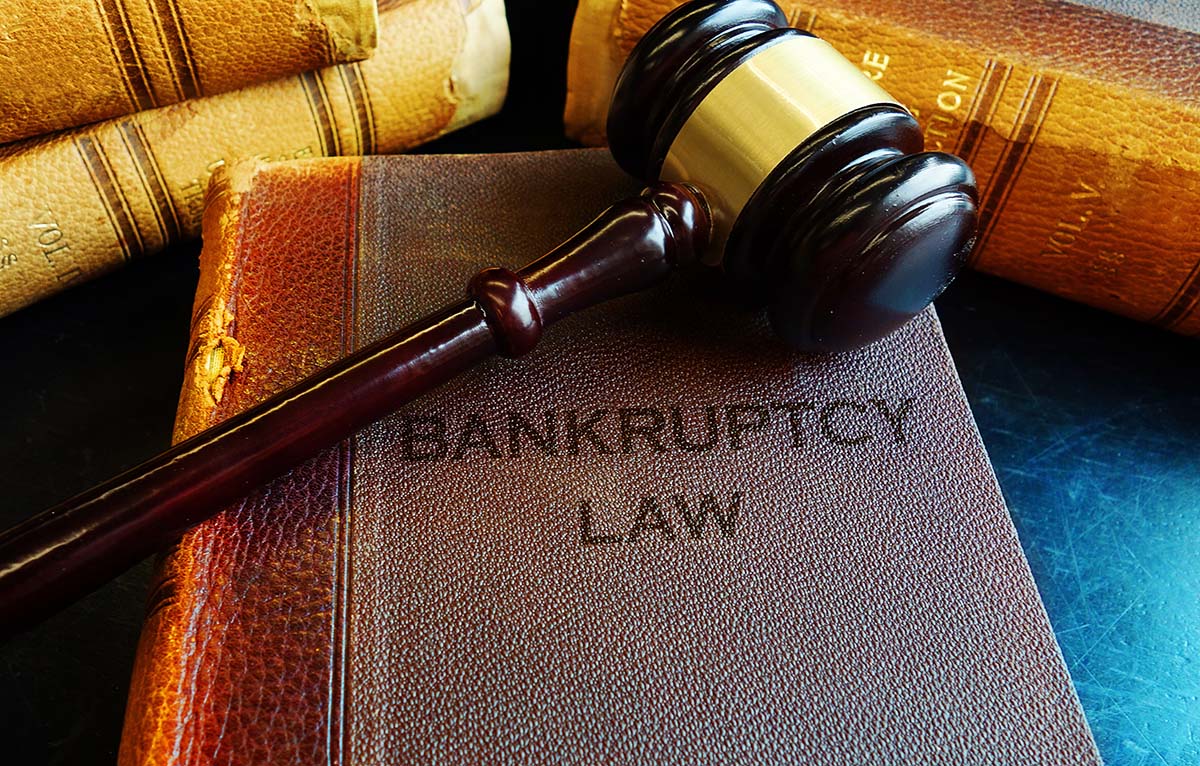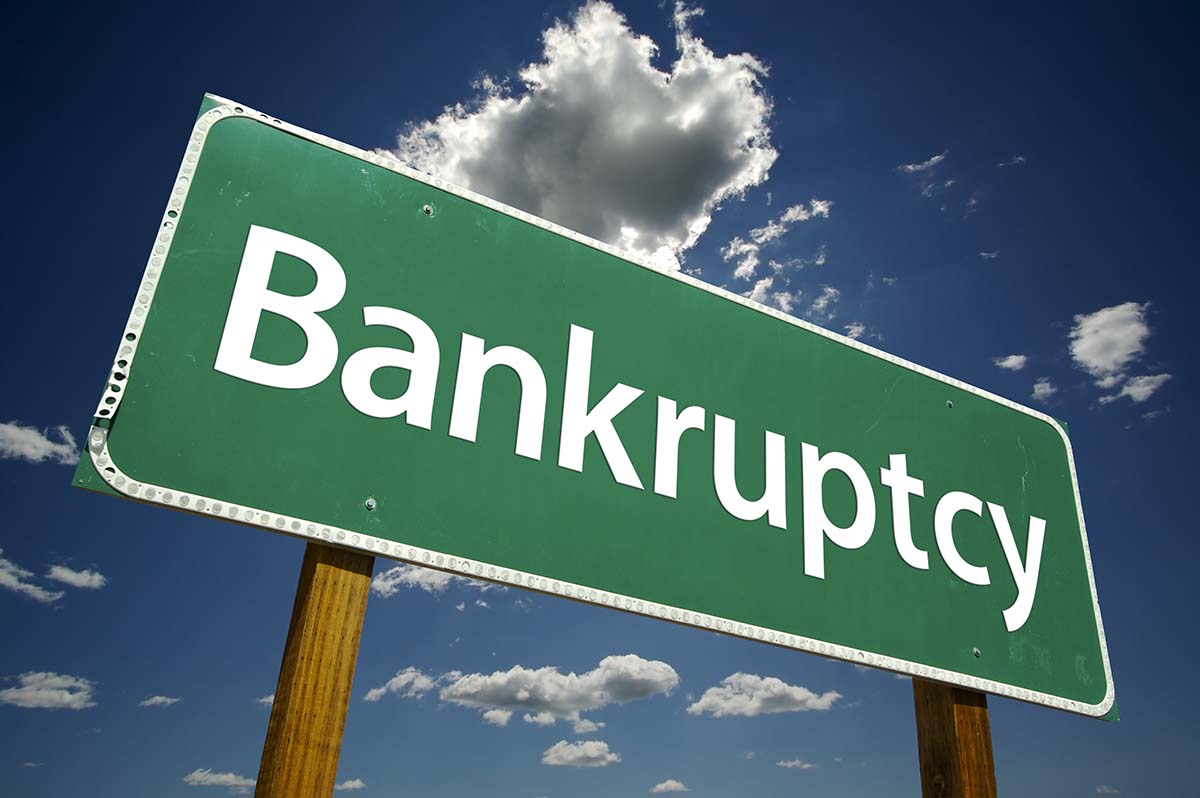What is bankruptcy:

Should you declare bankruptcy? A�Not most legal questions, the answer depends. A�Declaring bankruptcy, at least in the United States, is a legal decision which is usually carried out when one’s debt exceeds the assets which they own.A� To declare bankruptcy, one must voluntarily file for bankruptcy, generally after discussing options with a lawyer. Most people file bankruptcy underA�Chapter 7 and Chapter 13.A� Deciding which chapter to file largely depends upon one’s financial situation.
Chapter 7 Bankruptcy:
A Chapter 7 Bankruptcy, sometimes referred to as a a�?straight bankruptcy,a�? is definitely the more serious form of bankruptcy with the largest potential for damage.A� It does, however, also have the largest potential for debt absolution.A� It is usually the option for people who do not have the funds to gradually pay off their debt, so banks or credit card companies will liquidate their assets to recoup part of what they owe.A� This could include the seizing of a family home or car, and can spell doom for families scraping by on credit.A� However, for most people who declare Chapter 7 Bankruptcy, it is a reprieve from their mountain of debt, and gives them a more lenient time-line to pay back what they owe.
Chapter 13 Bankruptcy:
A Chapter 13 Bankruptcy, most commonly referred to as a a�?reorganization bankruptcy,a�? is far and away the better option if the person declaring bankruptcy has a reliable income.A� Over a three to five year span, credit companies and banks are forbidden from harassing the lender about their debt, and the person is able to pay off their debt over that period without losing any property.A� At the end of the period, much of the debt not paid is discharged.A� Most people who make a certain annual salary are barred from declaring Chapter 7 bankruptcy, and are thus forced to declare Chapter 13.
General Pros and Cons of Bankruptcy:
Whether you file Chapter 7 or Chapter 13 bankruptcy, there are certain pros and cons to consider.A� Of course, the ideal situation is to never declare bankruptcy, but if you find yourself in a difficult situation where bankruptcy is your only option, here are some considerations: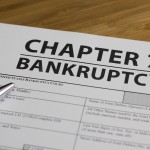
Especially with Chapter 7, Bankruptcy will negatively affect your credit:
Con-
The extent to which bankruptcy will affect your credit largely depends on your credit before the declaration of bankruptcy.A� For most people who declare bankruptcy, your credit is already bad, since you have likely been delinquent on many payments already.A� If this is the case, and your credit score is already low, it will take nothing more than a modest dip with the declaration of bankruptcy.A� Although many banks will not give out loans, and many communities will not approve a home mortgage, there are still many businesses which will cater to bankrupt individuals.A� One must be careful, however, that they are not being exploited with a ludicrously high interest rate.A� In rarer cases, when individuals declare bankruptcy with good or average credit, this declaration can devastate your credit score.A� It is ill-advised to do this without a very compelling reason.
Pro-
Although filing for bankruptcy will objectively be bad for your credit score, it may be better than the alternative.A� If you decide not to file for bankruptcy when you should, you may have defaults on payments, have property repossessed, etc.- all things which have disastrous effects on credit.A� So, although bankruptcy does hurt credit, the fallout of not declaring bankruptcy could be even worse.A� Moreover, because bankruptcy only takes roughly 3-6 months to process, and remains active for several years, the trade-off must be considered between a credit score decrease and long-term freedom from debt.
You will lose all of your credit cards:
Pro and Con-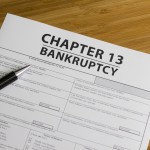
Losing all of your credit cards is definitely a negative, since many people rely on the convenience and freedom that they provide.A� However, for most people who declare bankruptcy, this effect is a blessing in disguise.A� Many who go into debt do so on the back of a high limit credit card; it is very easy for people to overdraft by sliding a piece of plastic you have to a�?pay back later.a�?A� So, although it may be inconvenient, the seizure of all credit cards often proves to be a last-ditch way to teach people financial responsibility.
You cannot file for Chapter 7 bankruptcy again in the near future:
Con-
If you are struggling with debt and simply need the Chapter 7 bankruptcy to survive, then that is something you must do.A� However, if you are unsure about the efficacy of bankruptcy in your situation, it may be beneficial to wait.A� If you declare Chapter 7 bankruptcy, you cannot do so again for six years.A� So, if your situation becomes even more difficult during the subsequent years after a Chapter 7 bankruptcy, you will not be able to re-consolidate your debt again.A� This makes declaring bankruptcy without making the accompanying lifestyle changes very difficult, since the person will probably once again end up in debt, even without the use of credit cards.
Pro-
A pro to declaring bankruptcy earlier rather than later is to begin rebuilding your credit.A� Once the burden of debt is lifted for the designated period of time, it makes paying things off much easier, and can lead (and is certainly designed to lead) to financial independence.A� Additionally, if you have a reliable income, you can re-declare Chapter 13 bankruptcy as often as you want in the event of a renewed disaster, keeping in mind that each declaration appears on your credit record.
Certain debts survive through bankruptcy (but many do not):
Con-A�
Even after bankruptcy is declared, many types of debts are retained.A� A partial (mostly complete) list of payments immune to bankruptcy are as follows:
-Student Loans
-Secured debt (car, jewelry, anything paid to a lender)
-Child support and alimony
-ex-spouse legal fees and credit card debt
-Court-ordered restitution
-Car accident resulting from intoxication or malicious conduct
-Income tax liability
Thus, if your debts are largely comprised of these types, and you are not in desperate need of shelter from debt collection, it may not be wise to declare bankruptcy.A� Even after the designated period, the debts from these types will not be wiped- in the case of a Chapter 13 bankruptcy, the remainder after the three to five years of payments will still need to be paid.
Pro-
Bankruptcy will wipe out many types of debt, including but not limited to most types of unsecured debt.A� Unsecured debt is debt which is not tied to property like a home or car.A� This debt can include things like credit card debt and medical bills.A� If your debt is largely comprised of unsecured debt, declaring bankruptcy can be an incredibly beneficial action to take.A� If your income is low enough to declare Chapter 7 bankruptcy, where a payment restructuring is not required, this could mean the wiping of most if not all of unsecured debt.
Also, some of the retained types of debt described above do have exceptions tied to them.A� For instance:
Student Loans- The exception includes proving a disability which will eliminate the ability to work in the future.A� The approval of this exception in court is extremely rare.
Secured debt- In the case of anything belonging to a lender, you may surrender the object back to the lender.A� You are not required to keep anything.
There are no exceptions for the other forms of retained debt, especially those which involve malfeasance (such as drunk driving fees).A� However, a well-meaning judge at a bankruptcy court has virtual sovereignty when it comes to debt absolution, and can potentially clear you of any and all debt with the right legal appeal.
So, should you declare bankruptcy?

Now that the pros and cons have been addressed, what are the circumstances where someone should declare bankruptcy?A� These questions should help you determine if you should declare bankruptcy:
Do you only make minimum payments on your credit cards?
Are bill collectors calling you?
Does the thought of sorting out your finances make you feel scared or out of control?
Do you use credit cards to pay for necessities?
Are you considering debt consolidation?
Are you unsure how much you actually owe?A�A� (taken from https://www.legalzoom.com/articles/bankruptcy-basics-when-should-you-throw-in-the-towel)
If you answered yes to two or more of these questions, you may want to consider filing for bankruptcy.A� Obviously, there is not a broad protocol for every situation, so before deciding, contact a lawyer to look over your financial situation.
If I do declare bankruptcy, what is the process in Arizona?
Since the 2005 Bankruptcy Act, those Arizonans who declare bankruptcy must participate in credit counseling within six months of filing.A� This includes a financial management instructional course.A� This same act also contains the determining factors for Chapter 7 vs Chapter 13 bankruptcy.A� Because Chapter 7 does not involve a re-payment plan like Chapter 13 does, many who are not worried about the dissolution of their property would prefer Chapter 7 bankruptcy.A� However, according to the Bankruptcy Act, only those under the current Arizona median income are eligible to file Chapter 7 bankruptcy.A� For those above the median income, they may still appeal for Chapter 7, but it is far more difficult to be approved.A� Most, though, will file Chapter 13 bankruptcy, and will be charged monthly based on their payment plan.
Once you have determined that you are filing for bankruptcy, and what chapter, you must gather your paperwork.A� In Arizona, you must organize your income sources and major financial transactions of the last two years.A� Also, you must declare monthly living expenses, debts, tax returns, car titles, and anything else relevant to your financial situation.A� If you are filing for Chapter 7 bankruptcy, this is the time when you (or more ideally you and your lawyer), will declare which items you believe are exempt from seizure.A� Then, you will file the two page petition to your Arizona district bankruptcy court.A� Those court forms can be found here: http://www.azb.uscourts.gov/court-forms
A Chapter 13 Bankruptcy also requires a proposed repayment plan.A� This must include average monthly expenses, in order to determine how much can be set aside for outstanding debt each month.A� Payments will be automatically taken from disposable income for at least three years.A� Payment for a Chapter 7 bankruptcy is 306 dollars, and can be paid in installments.A� Chapter 13 bankruptcy costs 281 dollars, and must be paid in full.A�
Interested in learning more about bankruptcy laws in the state of Arizona?A� We’d love to hear from you!A� Comment below or reach out to us on our social media channels.A� If you need legal help regarding a matter of bankruptcy, contact an experienced Phoenix attorney today.



